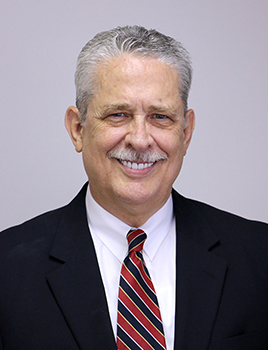 TOPEKA—Longtime attorney and Leavenworth resident Louis Clothier has been named executive director of the Kansas Lawyers Assistance Program beginning August 27.
TOPEKA—Longtime attorney and Leavenworth resident Louis Clothier has been named executive director of the Kansas Lawyers Assistance Program beginning August 27.
KALAP helps lawyers seek treatment for physical or mental illness, substance abuse, or emotional distress. Created in 2001, it operates under the direction of the Kansas Supreme Court.
Clothier succeeds Anne McDonald of Kansas City, Kansas, who has been executive director of KALAP since 2009 and before that was a member of the original board.
Kansas Supreme Court Justice Eric Rosen, who is the court's liaison to KALAP, said, "Finding a replacement for Anne McDonald was a tall order, but I believe we found someone we hope will be every bit as effective as she was in this role."
He added, "Lou's many years of experience as a litigator prepared him to serve as executive director and his candid humility will resonate with the attorneys and judges who come into contact with KALAP for deeply personal reasons."
Clothier considers himself one of KALAP's success stories, completing substance abuse treatment and salvaging his legal career. Clothier said he wasn't confident he would be hired to head KALAP, but saw it as "a wonderful opportunity to help other attorneys" in the way he had been helped.
The legal profession is considered one of the more stressful occupations, and statistics show attorneys are two to three times more likely to exhibit anxiety, suffer from depression, or become addicted to alcohol or drugs than the general population.
"The field of law is very rewarding, very honorable, and lawyers are held to the highest levels of behavior and professionalism," Clothier said. "And that's one of the stressors. It can really take a toll on a lawyer and their family and friends, and even clients."
He added, "The law profession has extremely high expectations, but it also has a heart. I'd like the public to know that attorneys are people too and that sometimes we could use some help."
He said he received the help he needed through KALAP and continues to be part of a 12-step program to aid in his recovery. He also said he believed it was his willingness to seek KALAP's help that mitigated disciplinary action against him by the Supreme Court, whose Office of the Disciplinary Administrator investigated complaints about Clothier.
Stan Hazlett, the disciplinary administrator, said KALAP can be part of the attorney disciplinary process. If the disciplinary office finds a complaint against an attorney has merit, and that attorney is working with KALAP, the attorney can consent for KALAP to share that information.
"That can be compelling testimony before a hearing panel—that the attorney is trying to get help," Hazlett said.
KALAP provides many different services, depending on the needs of the lawyer or bar association:
-
referrals for assessments, evaluations, therapy, or treatment.
-
short-term counseling sessions with a licensed counselor.
-
peer mentoring and support, modified interventions, and resiliency groups.
-
help with diversion and probation plans required by the disciplinary administrator or with monitoring contracts required by the Supreme Court's attorney admissions office.
-
guidance in closing a law office.
-
legal education programs for local and specialty bar associations or law firms.
KALAP services are always confidential and free. Funding comes from annual registration fees attorneys pay to practice law in Kansas.
The Kansas Lawyers Assistance Board governs KALAP. The Supreme Court appoints the 11 lawyers who serve on the board.
The heart of the program is a statewide network of more than 130 peer volunteers who help lawyers in need; many are in recovery themselves.
Clothier believes his experiences mesh well with KALAP's mission.
"My experiences the past five or six years had a profound effect on me," Clothier said. "People who are suffering an impairment or have certain needs are more willing to confide in somebody who has had or does have the same weaknesses or concerns."
He also sees the new job as bringing his career full circle. He taught English before going to law school.
"As a teacher, you exist solely to help the children. As an attorney, you're constantly fighting for the best interest of one litigant. To close out my career, I will be working solely to help other attorneys," he said.
Clothier earned an undergraduate degree in education from Emporia State University and taught for three years at West Junior High School in Leavenworth. He then enrolled at Washburn University School of Law and was admitted to the bar in 1981. He has practiced law in Leavenworth since then.